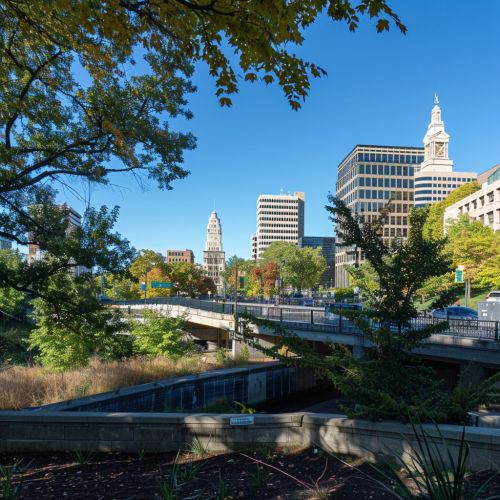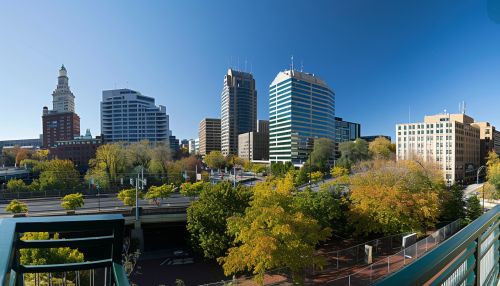Hartford, Connecticut
History
Hartford, the capital city of Connecticut, has a rich history that dates back to 1635, making it one of the oldest cities in the United States. It was founded by a group of settlers from the Massachusetts Bay Colony who were led by Pastor Thomas Hooker. The city was initially named Newtown, but was later renamed Hartford after Hertford, England, the birthplace of Samuel Stone, one of the city's founders.


The city played a significant role in the American Revolution, hosting the Hartford Convention in 1780. The convention was a pivotal moment in the war, as it led to the creation of the Continental Army and the appointment of George Washington as its commander.
In the 19th century, Hartford became a major industrial and innovation center. The city was home to many inventors and industrialists, including Samuel Colt, who established the Colt's Manufacturing Company in 1855. The company was a significant contributor to the Industrial Revolution, producing firearms used both domestically and internationally.
Geography and Climate
Hartford is located on the west bank of the Connecticut River and is part of the Hartford County. The city covers an area of approximately 18 square miles, with a diverse topography that includes riverfront access, urban areas, and residential neighborhoods.
The city experiences a humid continental climate, characterized by hot, humid summers and cold winters. The Connecticut River plays a significant role in moderating the city's climate, helping to temper both the summer heat and winter cold.
Economy
Hartford's economy is diverse and robust, with major sectors including finance, insurance, healthcare, and manufacturing. The city is known as the "Insurance Capital of the World," due to the presence of many insurance company headquarters such as The Hartford, Travelers, and Aetna.
In addition to insurance, Hartford has a strong healthcare sector, anchored by institutions like the Hartford Hospital and the Connecticut Children's Medical Center. The city's manufacturing sector, while not as dominant as it once was, still plays a significant role in the local economy.
Demographics
As of the latest census, Hartford has a population of approximately 123,000 residents, making it the third-largest city in Connecticut. The city has a diverse population, with a large number of residents identifying as Hispanic or Latino, African American, and White.
The city is also home to a significant number of immigrants, with a large proportion coming from countries in the Caribbean, particularly Jamaica and Puerto Rico. This diversity is reflected in the city's culture, with numerous cultural festivals and events held throughout the year.
Education
Hartford is home to a number of educational institutions, ranging from public and private schools to colleges and universities. The Hartford Public Schools system serves the city's K-12 students, while higher education options include the University of Hartford and the Capital Community College.
Culture
Hartford's cultural scene is vibrant and diverse, with a rich array of museums, theaters, and music venues. The city is home to the Wadsworth Atheneum, the oldest public art museum in the United States, and the Hartford Stage, a Tony Award-winning theater.
The city also hosts several annual cultural events, including the Greater Hartford Jazz Festival and the Connecticut LGBT Film Festival.
Infrastructure
Hartford's infrastructure includes a mix of historic and modern buildings, parks, and transportation systems. The city is served by the Bradley International Airport, the second-largest airport in New England, and has an extensive network of highways and public transportation options, including buses and a commuter rail service.
